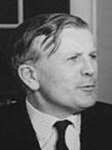
Back যুক্তরাজ্যের সাধারণ নির্বাচন, ১৯৬৬ Bengali/Bangla Eleccions al Parlament del Regne Unit de 1966 Catalan Etholiad cyffredinol y Deyrnas Unedig, 1966 Welsh Britische Unterhauswahl 1966 German Elecciones generales del Reino Unido de 1966 Spanish Yhdistyneen kuningaskunnan parlamenttivaalit 1966 Finnish Élections générales britanniques de 1966 French הבחירות הכלליות בבריטניה 1966 HE Elezioni generali nel Regno Unito del 1966 Italian 1966年イギリス総選挙 Japanese
| |||||||||||||||||||||||||||||||||||||||||||||||||
All 630 seats in the House of Commons 316 seats needed for a majority | |||||||||||||||||||||||||||||||||||||||||||||||||
|---|---|---|---|---|---|---|---|---|---|---|---|---|---|---|---|---|---|---|---|---|---|---|---|---|---|---|---|---|---|---|---|---|---|---|---|---|---|---|---|---|---|---|---|---|---|---|---|---|---|
| Opinion polls | |||||||||||||||||||||||||||||||||||||||||||||||||
| Turnout | 75.8% ( | ||||||||||||||||||||||||||||||||||||||||||||||||
| |||||||||||||||||||||||||||||||||||||||||||||||||
 Colours denote the winning party—as shown in § Results | |||||||||||||||||||||||||||||||||||||||||||||||||
 Composition of the House of Commons after the election | |||||||||||||||||||||||||||||||||||||||||||||||||
| |||||||||||||||||||||||||||||||||||||||||||||||||
The 1966 United Kingdom general election was held on Thursday 31 March 1966. The result was a landslide victory for the Labour Party led by Prime Minister Harold Wilson.
Wilson decided to call a snap election since his government, elected a mere 17 months previously, in 1964, had an unworkably small majority of only four MPs. The Labour government was returned following this snap election with a much larger plurality of 98 seats and therefore a majority of 48 seats. This was the last British general election in which the voting age was 21; Wilson's government passed an amendment to the Representation of the People Act in 1969 to include eligibility to vote at age 18, which was in place for the next general election in 1970.
This was the only election between 1945 and 1997 in which the Labour Party won a workable majority sustainable to last a full term. In the next seven general elections, the Labour Party would win a majority of seats only once (October 1974) and would lose five elections to the Conservatives. This election also noted the Labour Party achieving its third-highest vote-share (48%) and second largest total number of votes in history (the largest vote-share being the 49.7% achieved in the 1945 election).
Cite error: There are <ref group=note> tags on this page, but the references will not show without a {{reflist|group=note}} template (see the help page).


